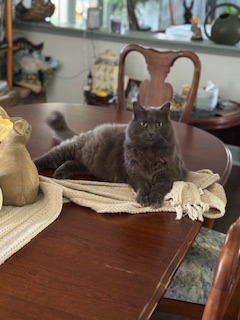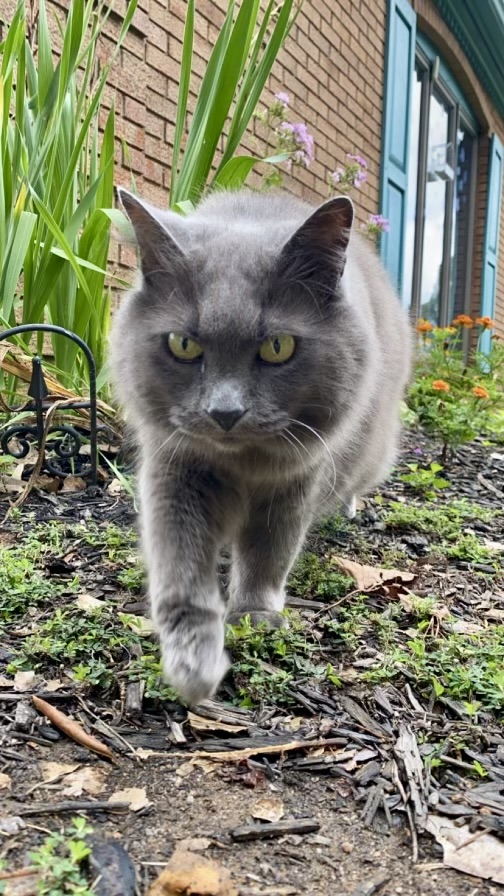Michigan Prissy Pants
Pet of the Month - October 2025
 Michigan Prissy Pants is a middle-aged male - a very thick, long-haired kitty. Recently, Michigan presented to the Animal Hospital very lethargic, not moving around much, not eating much and vomiting. On physical examination his abdomen had a palpable large, firm mass. Radiographs or x-rays were performed, and the mass appeared to be the stomach. It was inconclusive as to whether it was foreign material like cloth from a toy or a tumor. The owner elected to have abdominal exploratory surgery for Michigan.
Michigan Prissy Pants is a middle-aged male - a very thick, long-haired kitty. Recently, Michigan presented to the Animal Hospital very lethargic, not moving around much, not eating much and vomiting. On physical examination his abdomen had a palpable large, firm mass. Radiographs or x-rays were performed, and the mass appeared to be the stomach. It was inconclusive as to whether it was foreign material like cloth from a toy or a tumor. The owner elected to have abdominal exploratory surgery for Michigan.
During surgery, Michigan’s stomach had a large amount of foreign material. Upon
surgically opening the stomach, we discovered that the “mass” was a large trichobezoar or hairball the size of the stomach. Cats can get hairballs but usually vomit very small ones. Most of the time, the hair moves through the intestinal tract into the colon. For whatever reason, Michigan retained this groomed hair in the stomach. Likely it had been building over a long period of time. 
Michigan recovered well after surgery. He dealt with an incisional infection but he rebounded. Now, Michigan’s owners groom him more often as well as institute regular administration of cat laxatone which serves as a hair lubricant to move hair through the intestinal tract. He was also transitioned to a hairball diet which has fiber components and lubrication to aid in naturally moving fur through the intestinal tract.
 Michigan was an unusual case. He’s a really cool kitty. That is why he is Animal Hospital’s Pet of the Month!
Michigan was an unusual case. He’s a really cool kitty. That is why he is Animal Hospital’s Pet of the Month!
